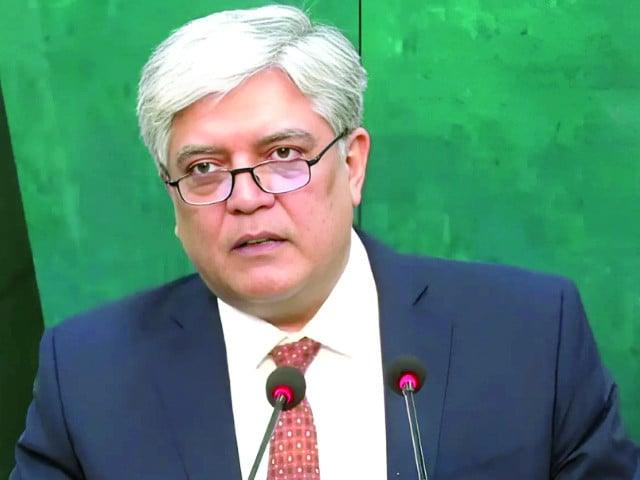The Foreign Ministry of Pakistan has condemned the aggressive military actions of India and the hostile diplomatic position, holding New Delhi for its unilateral imprudent aggression, the deliberate orientation of civilians and the shameless violations of international treaties.
The spokesman of the Ministry of Foreign Affairs, Shafqat Ali Khan, declared that India has acted “as a judge, jury and executioner”, launching cross -border attacks based on unseed social media accounts.
He said such actions were in clear violation of international norms and represented a serious threat to regional peace.
Fo Spokeson also said that investigations on Patkhankot and Mumbai attacks could not progress due to the persistent non -cooperation of India, undermining the search for justice.
He added that while India levels the accusations against others, constantly ignores its own documented role in the destabilization of the region.
The spokesman said that Kulbhushan Jadhav, a commander of the Indian Navy captured in Pakistan, remains a living evidence of Indian participation in terrorist activities within Pakistan.
He also cited the bombing of Samjhauta Express, which resulted in the death of innocent civilians, including children, and involved Hindu extremists linked to the ruling party of India.
Rejecting the affirmation of India to attack the militant infrastructure, he said that the attacks resulted in the martyrdom of civilians, including women and children.
He pointed out that the mosques and the Neelum dam were among the objectives, calling him a deliberate attack against the population of Pakistan. “India must be responsible,” he said.
When commenting on water disputes, the spokesman said that the Treaty of the Indo’s waters had resisted the test of time, but the current suspension of India of its obligations was “illegal” and reflected a “discarded contempt by international treaties.” He stressed that Pakistan is an agricultural country with an agrarian economy, and said that India’s actions were equivalent to an open attack on both Pakistan and its people.
He also criticized the recent comments of the Secretary of Foreign Affairs of India, calling them indiplomatic and irresponsible. ‘We regret the use of such language. He expected better, “he said, adding that the Indian government has developed a pattern of making” absurd and unfounded statements. “
In addition, he pointed out that India himself brought the United Nations the United Nations dispute, but now refuses to honor his commitments.
“India remains a key source of instability in southern Asia, having blocked all serious efforts towards regional cooperation,” he added.
Latest tensions
The last climbing in the tensions between India and Pakistan follows the attack of April 22 in Pahalgam, India illegally occupied Jammu and Kashmir (Iiojk), which resulted in 26 deaths. India immediately accused the elements based on Pakistan to orchestrate the attack, although no evidence was provided. Islamabad has strongly rejected these accusations.
In retaliation, India closed the Wagah Earth border on April 23, suspended the Indo Water Treaty and revoked the Pakistani visas. Pakistan responded labeling any interruption of water flow as an “act of war” and closed the Wagah crossing on his side.
The situation intensified even more on Wednesday, as the reports of several cities in Pakistan, including Muzaffrabad, Kotli, Mueridke and Bahawalpur, detailed multiple explosions. Pakistan’s military spokesman, Lieutenant General Ahmed Sharif Chaudhry, confirmed that Indian air attacks had addressed multiple locations within Pakistan. In response, Pakistan released Swift Air and Ground Operations.
In the first hour of retaliation, Pakistan announced the fall of five Indian combat planes, including four Rafale aircraft, which India had recently acquired from France to strengthen its aerial defenses after the failed Balakot operation in 2019.
“Pakistan could have demolished 10 Indian combat planes,” said Lieutenant General Chaudhry during a press conference. “But Pakistan chose to exercise restriction.”
Despite the scale of the response, the Indian media remained silently on the losses. The Hindu, a prominent Indian newspaper, initially reported that three Indian planes had been demolished, but then eliminated the article, probably under the pressure of the Indian government to avoid more shame.
An American commentator about CNN declared that the potential loss of Rafale’s aircraft severely damaged the claim of India of aerial superiority, which had built around the induction of these advanced French combat planes. Some experts speculated that the confrontation served as a test of Chinese and Western military technologies, particularly after Pakistan acquired J-10c aircraft from China in response to the Indian rafale fleet.
A senior French intelligence official confirmed to CNN that a Rafale plane had been shot down by Pakistan, marking the first time that this sophisticated French plane had been lost in combat.
In another development, Pakistan’s armed forces confirmed the neutralization of 25 Israeli manufacturing Harop drones used by India in recent cross -border activity.
A statement issued by Public Relations between Pakistan Services (ISPR) confirmed on Thursday that these drones were demolished using both electronic countermeasures (soft slaughter techniques) and conventional armament (hard slaughter systems) after they were detected flying over multiple areas throughout Pakistan.
The ISPR described the drone raids as a “desperate and panic response” of India, which occurred after Pakistan retaliation operations on May 6 and 7, in which five Indian combat planes fell and several military positions fell.
Not immunate by the armed drones made by Israelis, called “Mero -Munitions”, sent by India in multiple cities of Pakistan, including Karachi, the residents of the Metropolitan City poured into the streets into an extraordinary wave of solidarity with the armed forces.
The number of Indian drones demolished by the Pakistani armed forces had reached at least 77, security sources confirmed on Friday.




